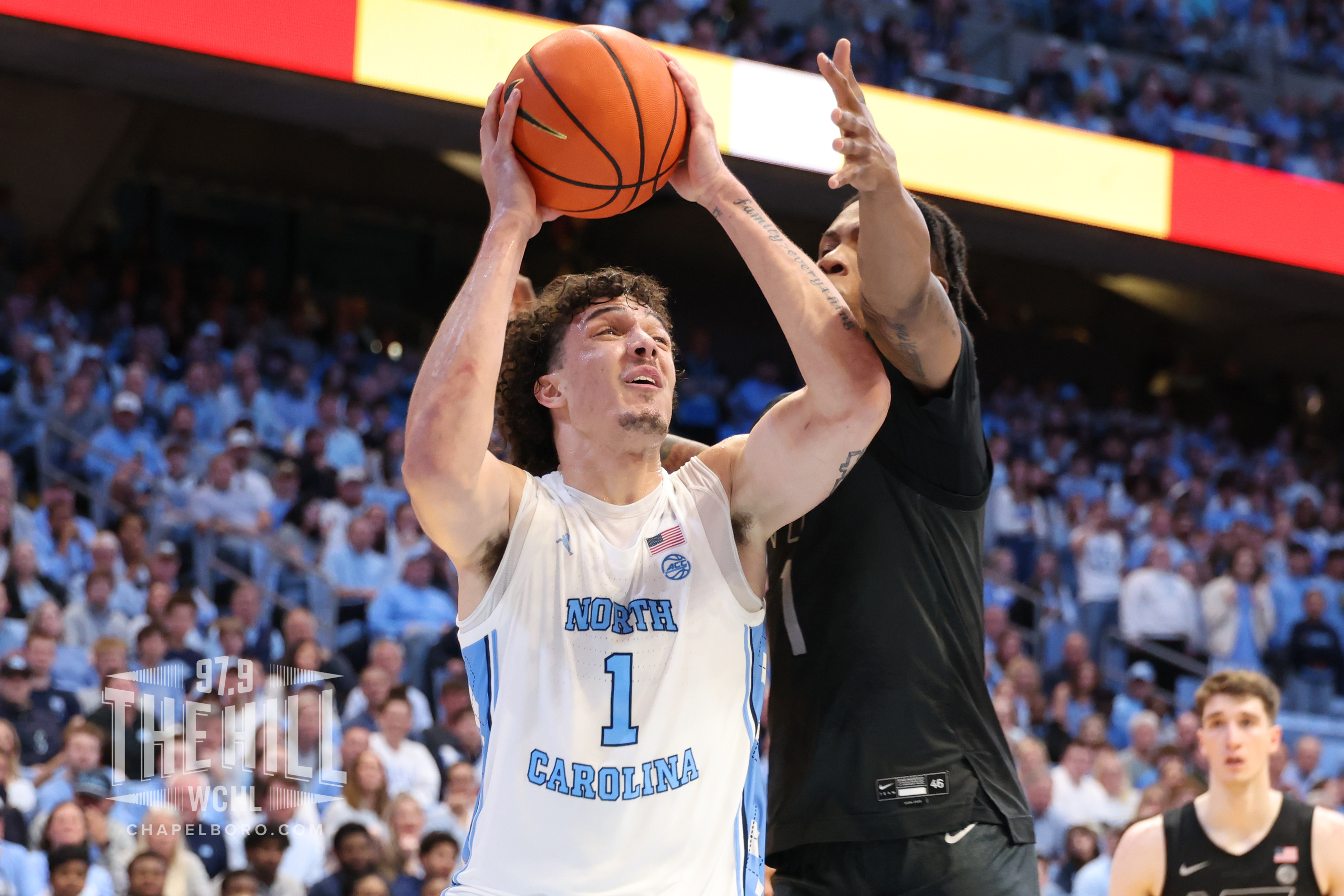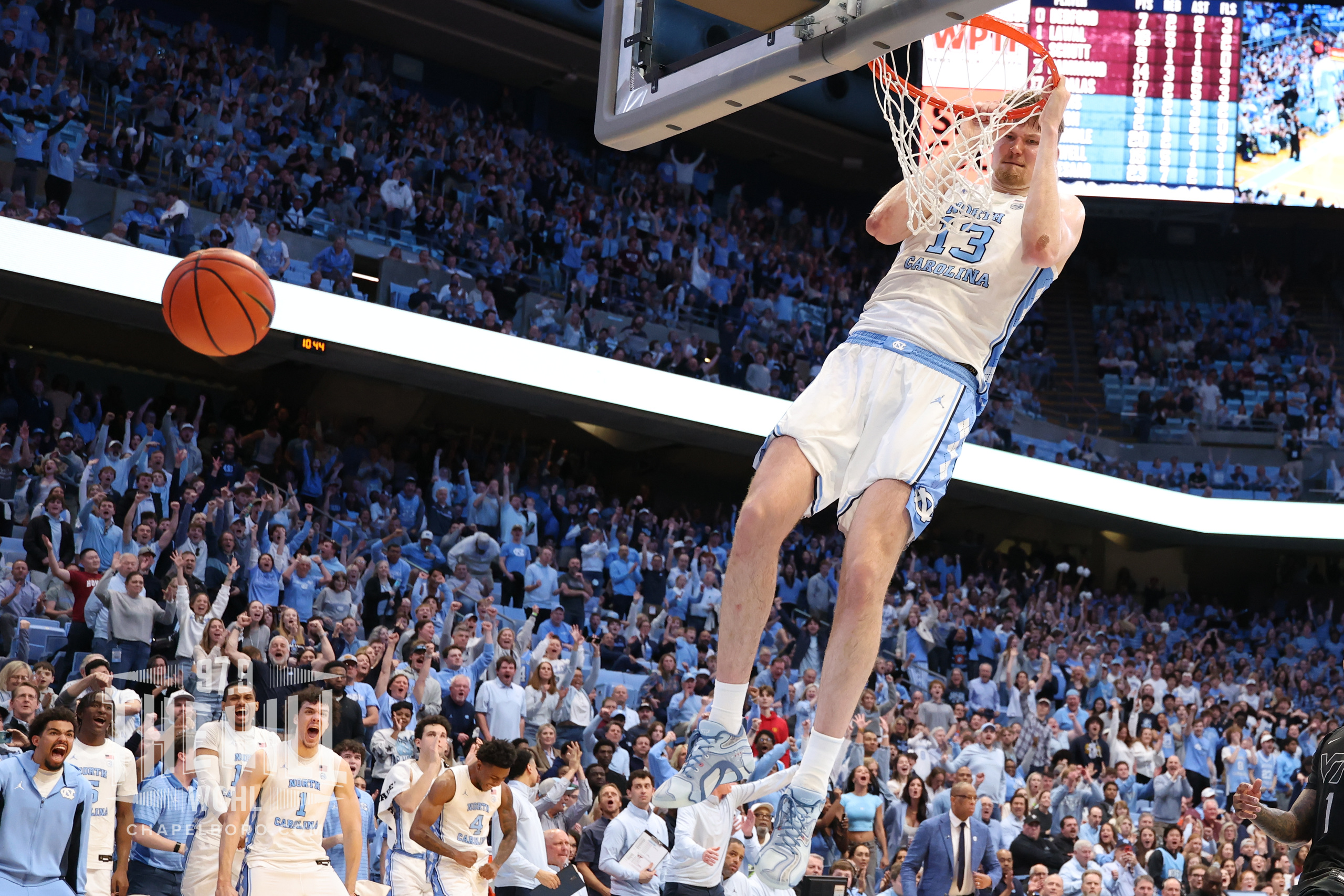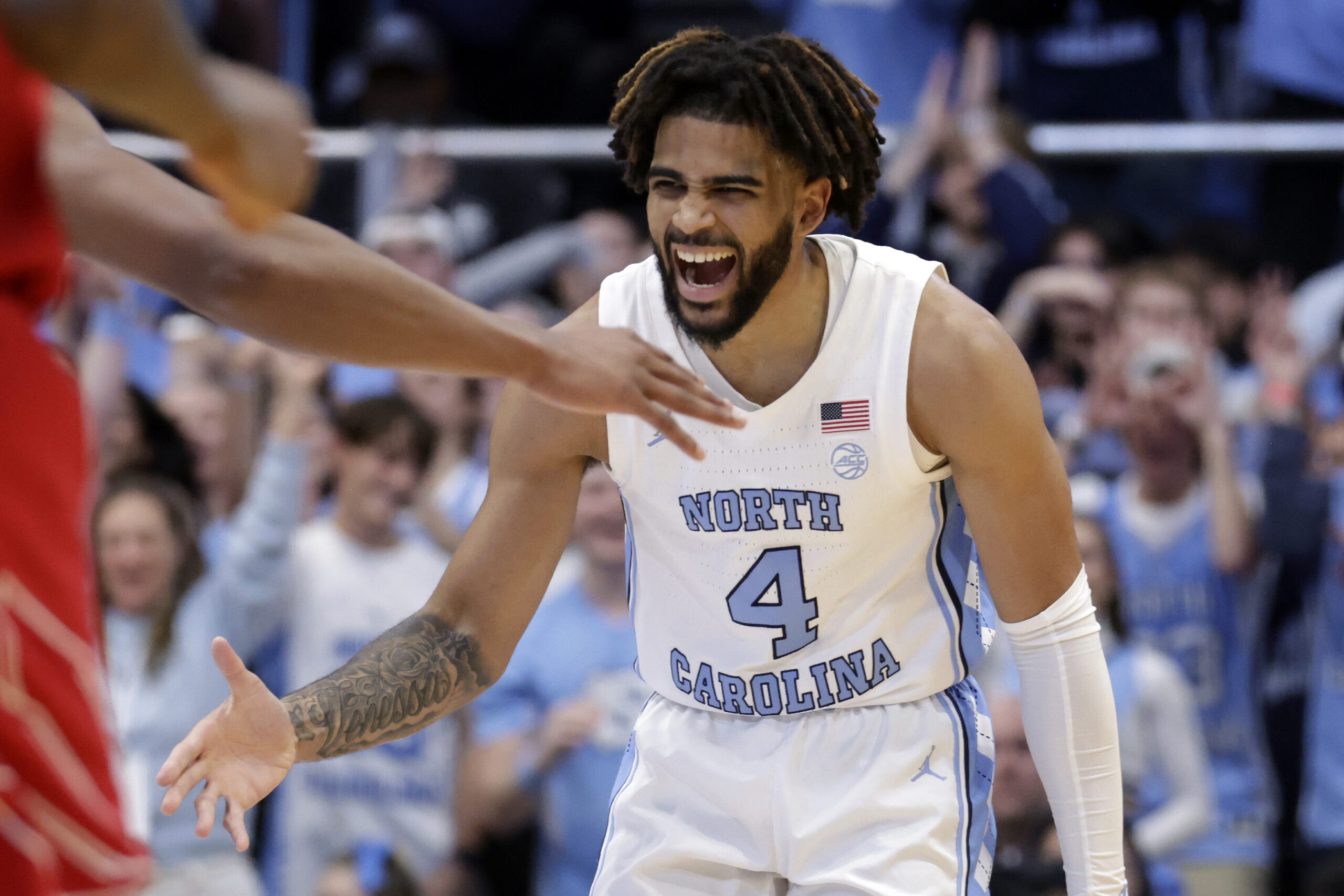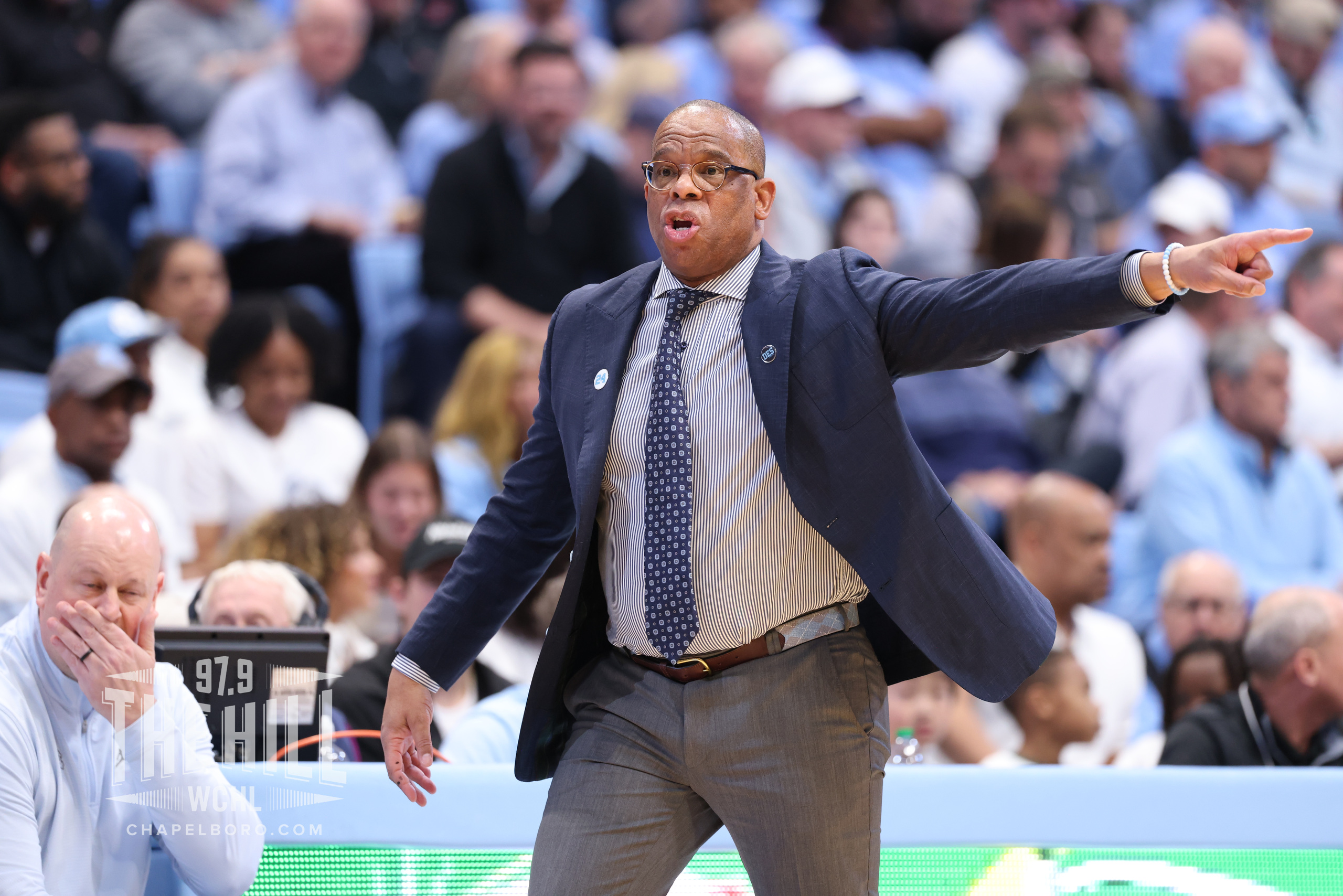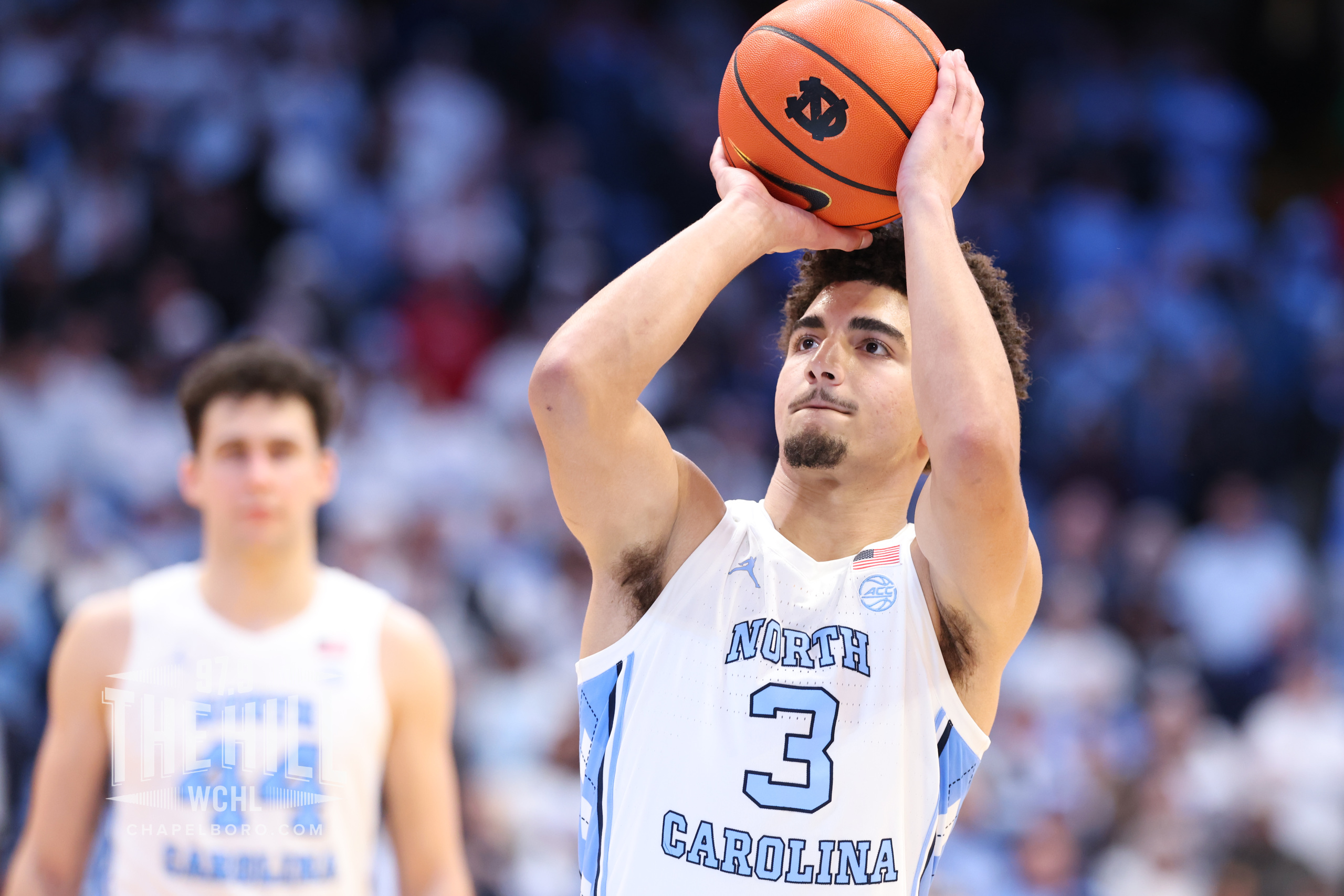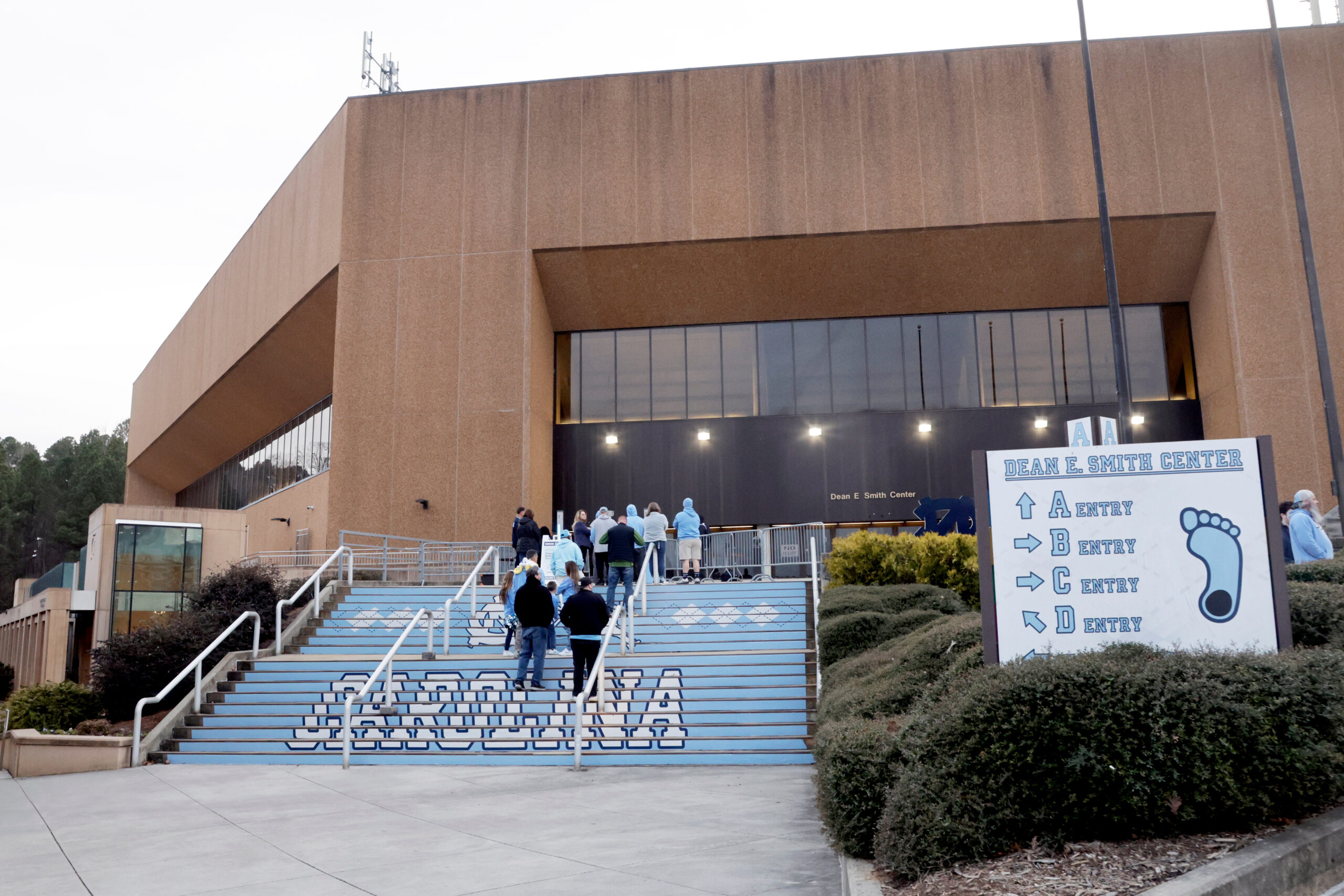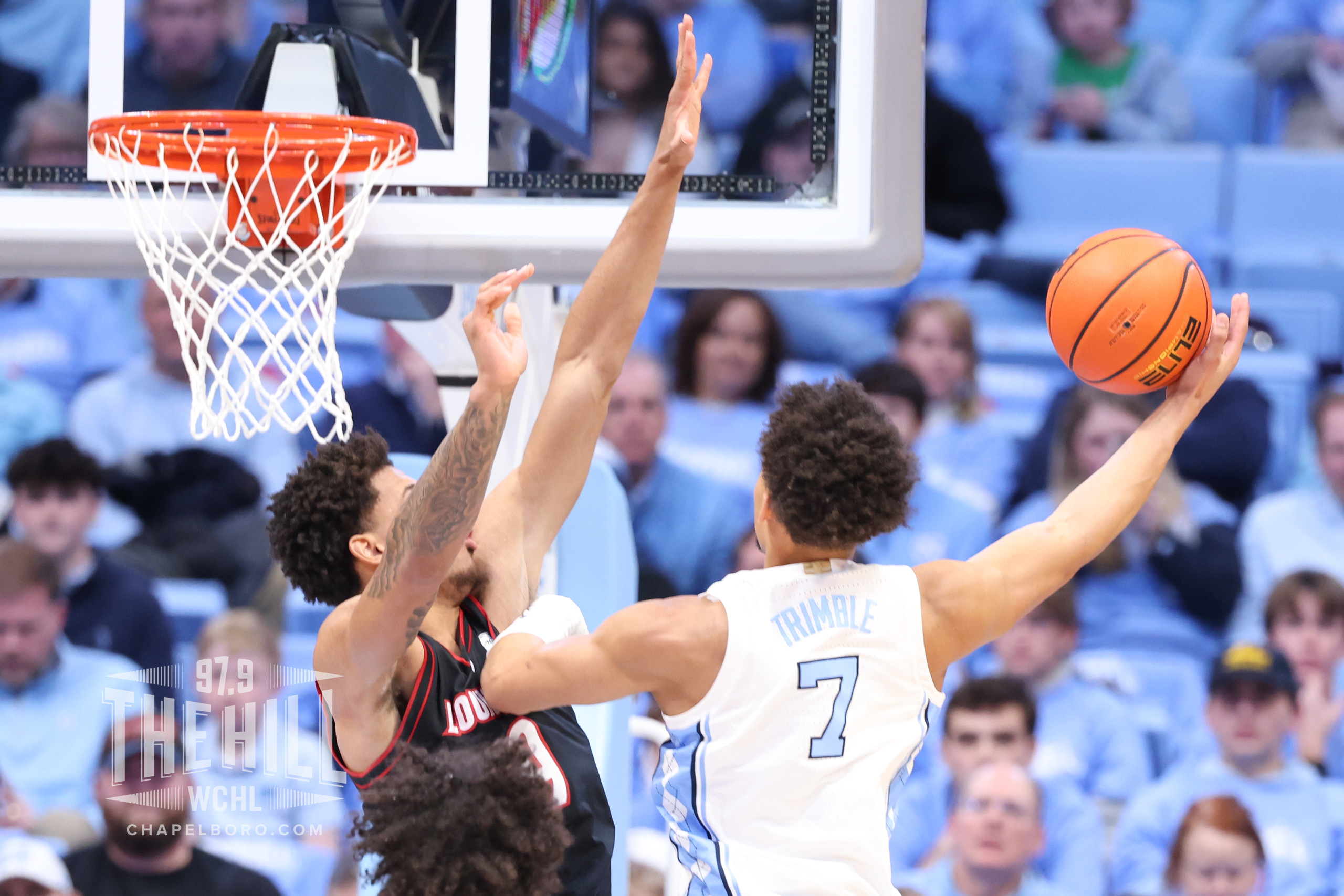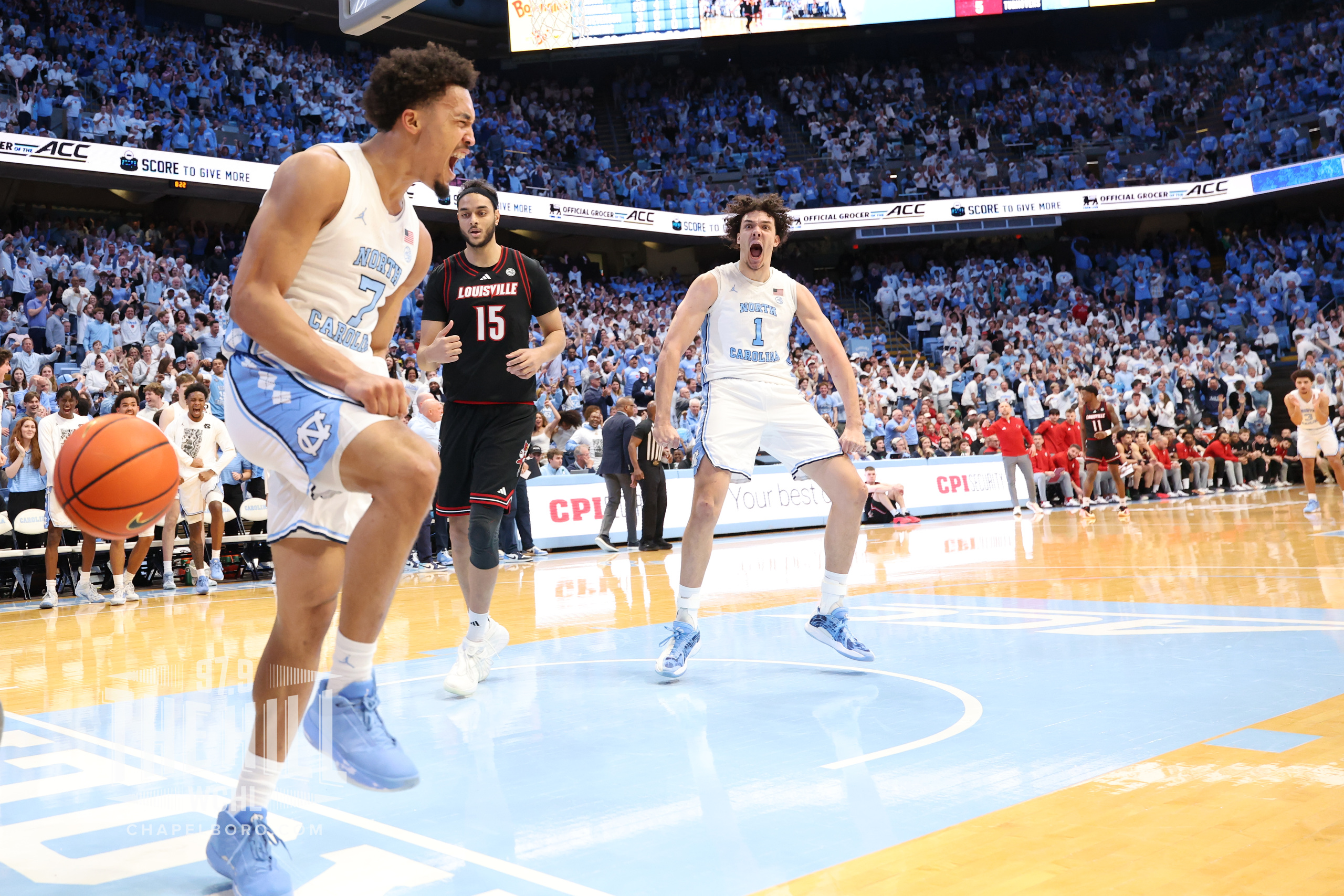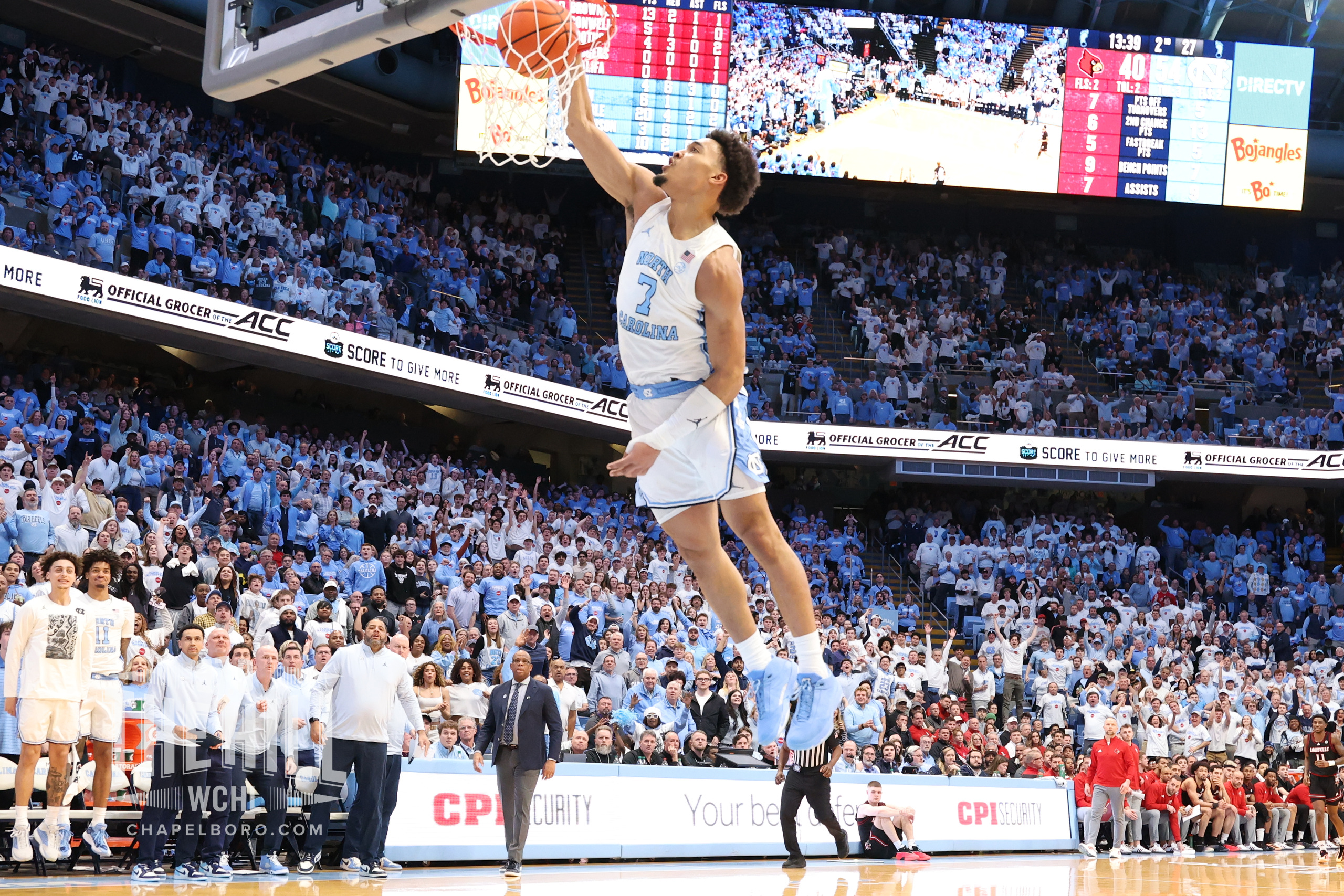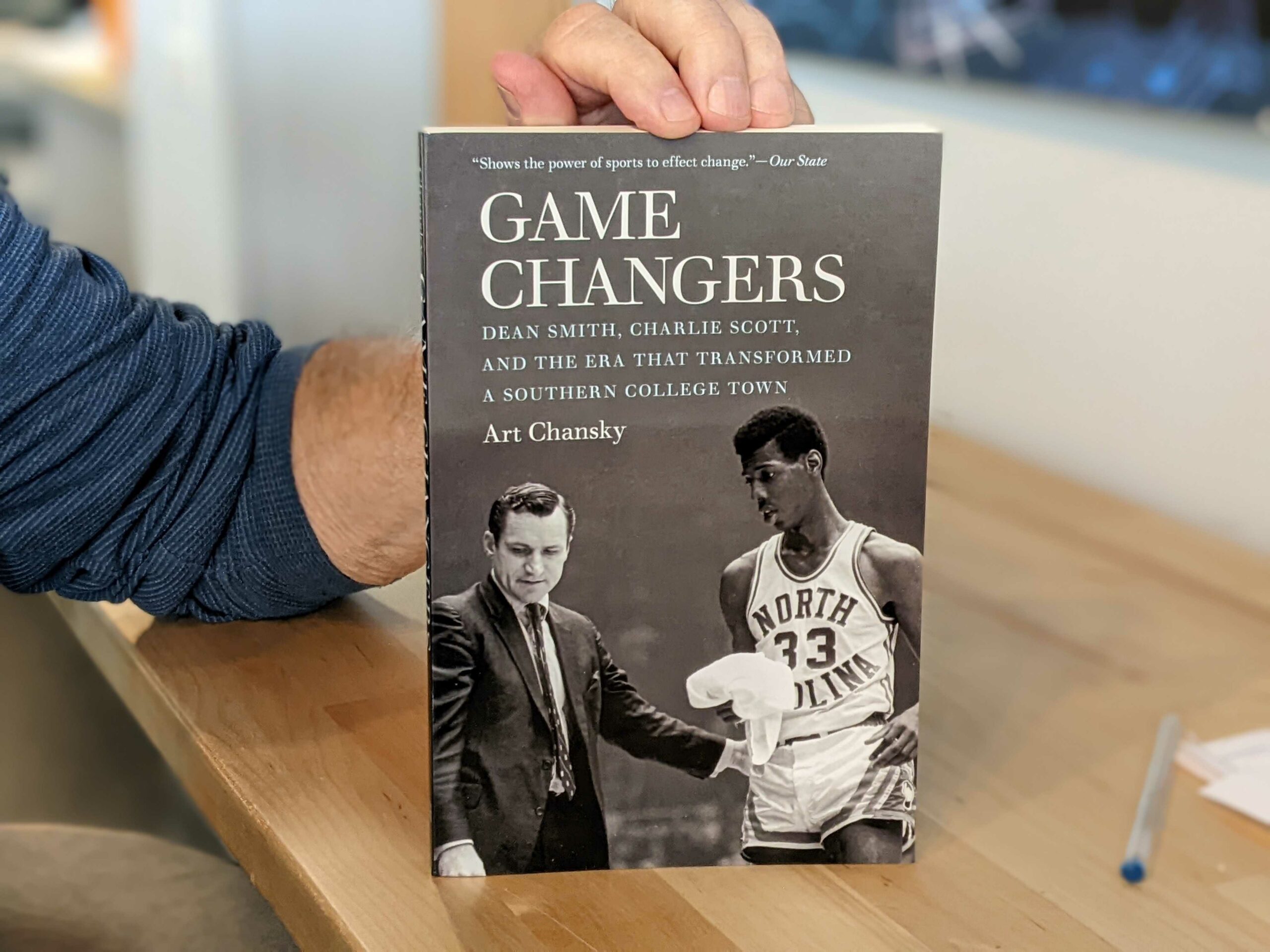
In 1967, Charlie Scott became the first Black man to receive an athletic scholarship at the University of North Carolina. Though Scott would’ve been a notable Tar Heel for that fact alone, he quickly distinguished himself on the court with his spectacular play. Scott and head coach Dean Smith led Carolina to the Final Four in 1968 and 1969, likely saving Smith’s job in the process.
The courage and perseverance of Scott and Smith, and their effect on the town of Chapel Hill and UNC, is documented in the book “Game Changers,” by Chapelboro.com’s Art Chansky. The book was published in August of 2018 and is available from UNC Press. This year, North Carolina selected the book as one of five for its annual “NC Reads” initiative. Each book in the initiative is about North Carolina history and culture, often with a focus on race and gender.
Chansky joined 97.9 The Hill’s Aaron Keck to discuss how the book came to be and lessons we can still learn from it today.
Click here to listen to their full conversation.
Aaron Keck: Congratulations. This is great.
Art Chansky: Thanks. You know, I’ve written a bunch of books, but this was the most fun to write because I learned so much about North Carolina and Chapel Hill and this area. We were a lot different back in the 60s. I mean, everybody still has room to improve. I think about JFK’s book “Profiles in Courage.” This is really the local version of “Profiles in Courage.” Because when you think about Dean Smith, he was in his early 30s, hadn’t won anything as the basketball coach and actually was under great fire from some of the alumni.
Aaron Keck: Literally in one case, right? Burned in effigy in 1963 or 1964 or something like that.
Art Chansky: 1965. Yeah. Hung in effigy. It goes back to his background, because his father was a coach in Kansas, Alfred Smith, and he integrated high school basketball in Kansas. So that was in his DNA. But he also wanted to have the best basketball team, regardless of who was on that team. And he wanted the best student-athletes and the best players. And he wanted to integrate the program.
And then here’s Charlie Scott, 17 years old, who’d really never lived in a white society before, grew up in East Harlem, spent the last three years of high school at Laurinburg Institute, and he comes to Chapel Hill. Fifty-five Black students on campus at the time in the student body of 13,000. So when you talk about “Profiles in Courage,” they are two guys. And not only that, they come from different parts of the world. From Kansas to East Harlem.
It’s a great story and it was a great “growing up” experience for Chapel Hill as well, because basketball, by the time Charlie got here, was just getting into its “championship mode” with the 1967 ACC championship team. And then Charlie joined the team in 1968. So there was a lot going on, but basketball and Carmichael Auditorium was kind of a safe haven for people. They would go and watch this great team that Dean Smith was building, but it was difficult for both of them. I mean, there’s an anecdote in the book where in the 60s, Dean and his wife Anne were building a new house in Chapel Hill. And some neighbors walked by and kind of made the comment like, “Aren’t you jumping to conclusions?” Or, “Aren’t you acting a little fast?” as to imply that Coach wasn’t gonna be around very long.
And then Charlie, of course, he was safe between the lines of the basketball court, but nowhere else on campus was he safe. When Dean Smith recruited him, some Black members of the community and the university assisted him in recruiting. But once Charlie got here, he really wasn’t welcomed in any other part. And then what he did, he found his social life at North Carolina Central. And got married after his sophomore year. And Charlie was very proud that he found that, because he recognized how difficult it was gonna be when he came here. So it was a total profile in courage of two people who turned out to be a Hall of Fame coach and one of the most iconic players that’s ever played here.
Charlie making it at Carolina meant that the Bill Chamberlains, the Phil Fords, the Dudley Bradleys, and eventually Michael Jordan and James Worthy would come here, where at other schools, it didn’t work. For example, on [Charlie’s] recruiting visit to Duke, he visited with a kid named C.B. Claiborne, who was one year older. And C.B. told him, “Don’t come here. Don’t come to Duke, because they’re not ready for us yet.” And so for Charlie to make it at Carolina indicated that they were not only the state university, but the university of all the people. And then from that Dean built a great basketball program.
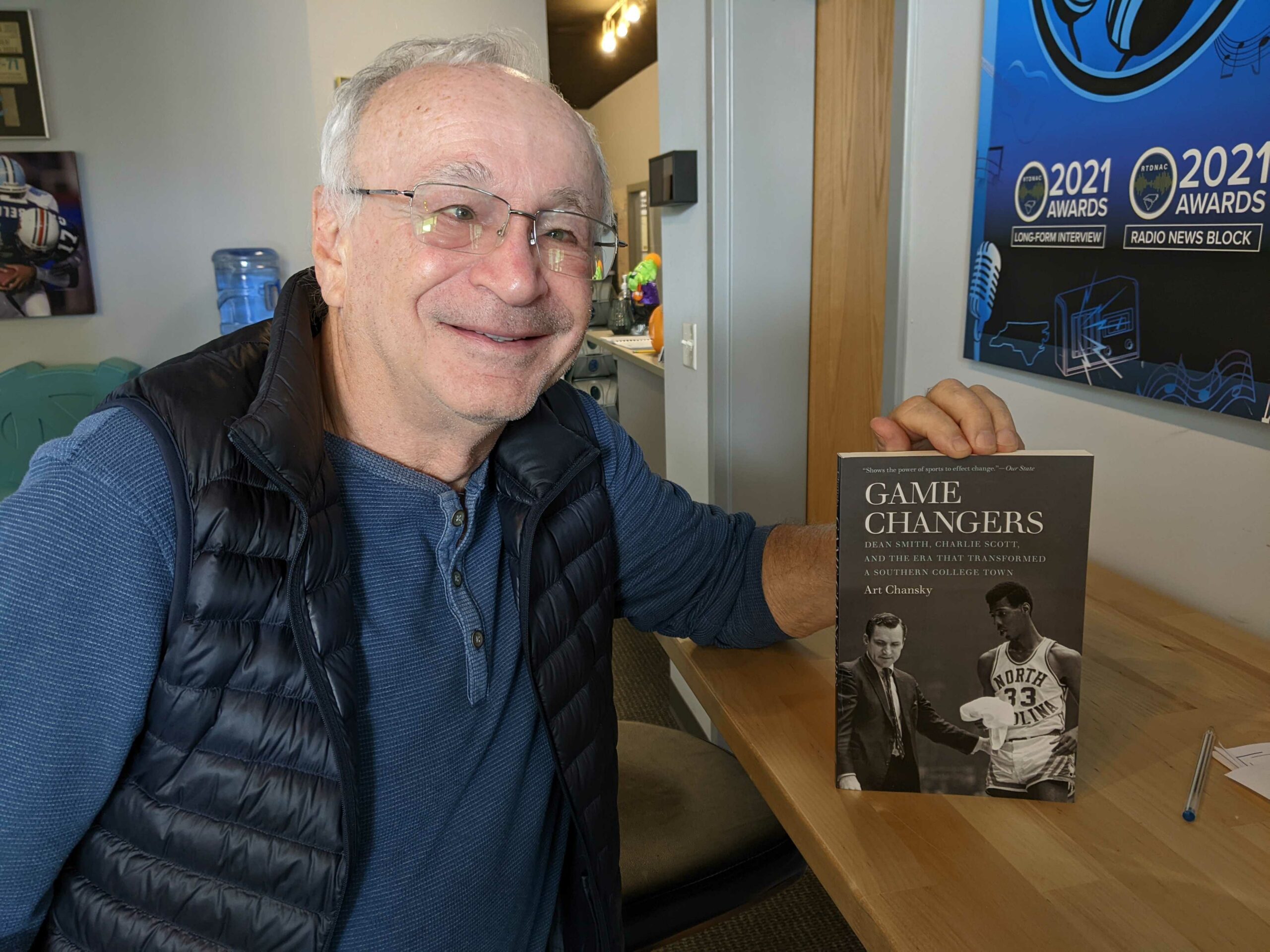
Author Art Chansky with his book, “Game Changers.”
Aaron Keck: You were here in Chapel Hill when this was going on. How much did you learn that you didn’t already know?
Art Chansky: I learned so much from writing the book. At that time, other than Bill Aycock, it was very conservative. They did their best to keep what was going on in the Civil Rights Movement, West Franklin Street, which was then the beginning of the Black neighborhood and Lower East Franklin Street, they really kept it off campus. There was the Speaker Ban Bureau, which was kind of ridiculous. There was some fear that some of the members of the Communist Party who lived in Carrboro would come speak on campus. But they really did that to keep the Civil Rights Movement off campus. I lived in a fraternity house and you heard about things, but we didn’t really know what was going on in the rest of town.
And then we went to Carmichael and reveled in Charlie Scott being just an amazing athlete. He was transcendent in terms of his athletic ability. He was really the first player who really played above the rim. And he was a spectacular player to watch. But he got caught up in the 55 Blacks that were on campus at the time. Most of them were members of the beginning of the Black Student Movement. And they were banging on Charlie and Bill Chamberlain, who was a freshman in 1969, to do something to support their 23-Point Program that they had given to Carlisle Citizen.
And Charlie was very smart. Dean called him in the office and said, “Charlie, at the end of the day, you’re gonna do what you wanna do. But just remember you’ve got your own personal family to represent. You’re representing a university that gave you a scholarship to play basketball. You’re representing your teammates who are probably your most important family right now. So do what you think is right.”
So Charlie did go to the meetings, but he never spoke up. And they were saying that Bill Chamberlain and Charlie Scott were gonna quit the basketball team if these demands weren’t met, which was not true at all. So that’s some of the pressure that he was under. And in College Park, Maryland, in the regionals that year, the Washington press and media, which is a lot more aggressive than it is in North Carolina, they asked Charlie about the voting not only for ACC Player of the Year, which he lost to John Roach from South Carolina, but he was left off five first team All-ACC ballots.
Now if you’re a big South Carolina fan, you could say John Roach, who was sort of the darling who pulled a big upset against Carolina in Charlotte, that he was the best player in the league. But there’s no way in the world that Charlie Scott was not among the five best players in the league. And Dean didn’t say much, but he did say that was blatant racism. And so they were asking [Charlie] about it. And meanwhile the Black Student Movement was asking him to make a statement. And on Saturday morning when they were playing Davidson for the second year in a row in the Elite Eight to go to Carolina’s third Final Four, Dean called a special meeting at the hotel in the morning. And Charlie Scott and John Lotz were not there. John was an assistant coach. And he said, “They’ll meet us at the arena.” But basically he said, “After what happened Thursday night, you’re gonna be asked questions about the All-ACC voting and the alleged racism. And I just want you to know that. So be prepared about what you’re going to say.” He didn’t tell them what to say, but just be prepared.
And the truth is, Aaron, that Charlie was thinking about not playing that game and John said to Charlie, “Now you can’t do anything about those five guys who left you off the team. And so who are you gonna hurt if you don’t play? You’re gonna hurt mostly your teammates who love you. You love them. So go out there and prove that you’re not only one of the top five players in the league, but you are the best player.”
And he went out and, without Dick Grubar who was injured, the starting point guard, he tore it up and hit a buzzer-beater with 32 points and sent Lefty Driesell to his second straight Elite Eight loss. Lefty never got to the Final Four in his entire coaching career. So when you think about the extrapolation of that, say Charlie didn’t play in that game. His legacy would’ve been different. People might have forgiven him years later, but I don’t think Dean Smith would’ve lasted as the coach because when he got back to campus, they would’ve called him from South Building and said, “Explain this to me, Coach. This kid, we just gave him a scholarship to play basketball at Carolina. How did he sit out the most important game of the year?”
And Dean would’ve said something about “It was Charlie’s right. And he was mad about racism.” And they would’ve said, “Dean, let me ask you again. Why did this kid who we gave a scholarship to play basketball not play the most important game?” And I think he wouldn’t have lasted the next year. They didn’t get to the NCAA Tournament because the Clark/Bunting/Grubar class was gone. And Charlie was averaging 35 points a game, but he wasn’t good enough to take them to the tournament. And that’s when I think they would’ve pulled the plug on Dean Smith.
And so it’s just a fascinating story, and people who have read it who were here at the time, like you said, we knew a little bit about it, but we didn’t know the details. The younger generation has not read it as much as they should. And Matt Andrews at Carolina has a class every semester and it’s required reading. So the younger people need to understand that this is not just a great basketball program that we have. It didn’t just happen. It happened through the strength and courage of two people.
Chapelboro.com does not charge subscription fees, and you can directly support our efforts in local journalism here. Want more of what you see on Chapelboro? Let us bring free local news and community information to you by signing up for our biweekly newsletter.

